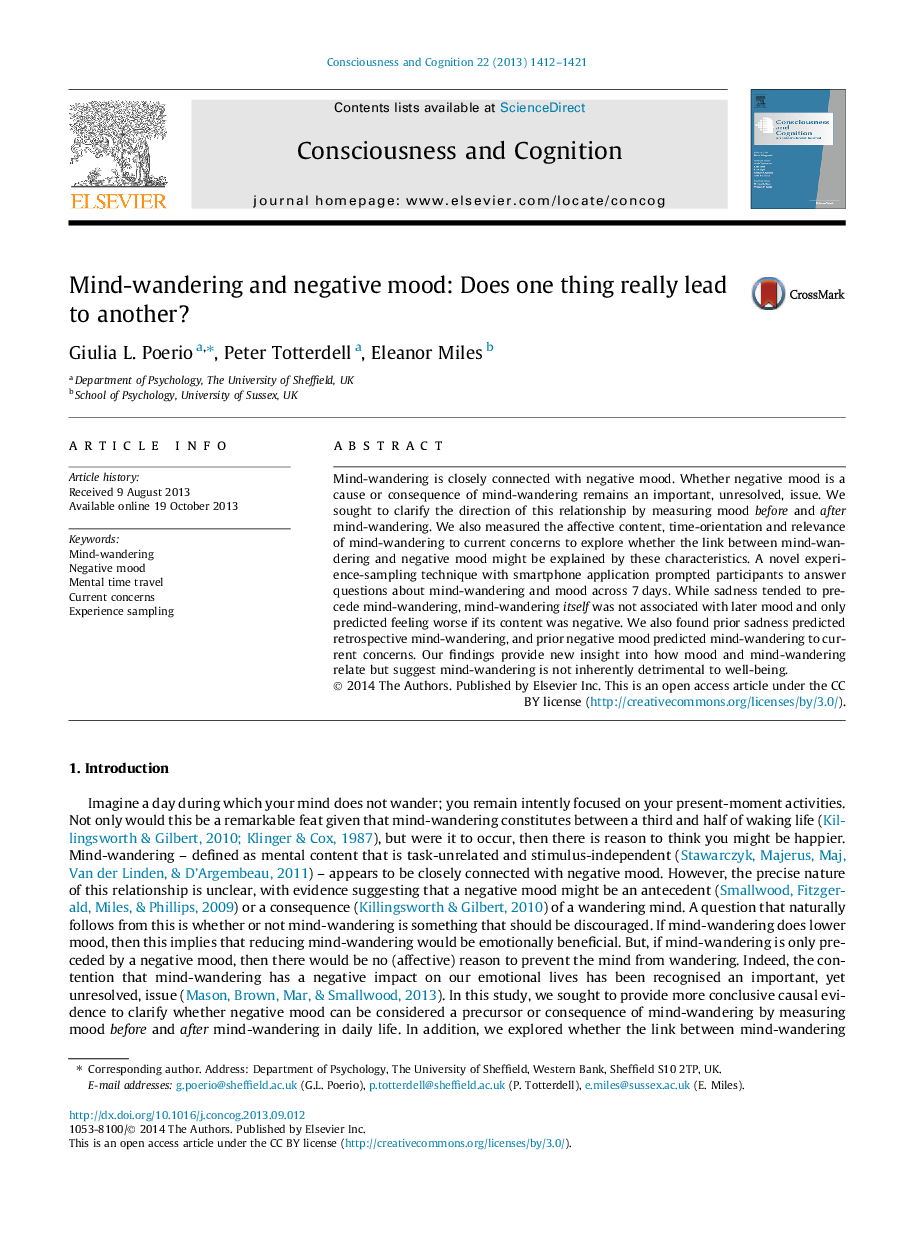| Article ID | Journal | Published Year | Pages | File Type |
|---|---|---|---|---|
| 10458522 | Consciousness and Cognition | 2013 | 10 Pages |
Abstract
Mind-wandering is closely connected with negative mood. Whether negative mood is a cause or consequence of mind-wandering remains an important, unresolved, issue. We sought to clarify the direction of this relationship by measuring mood before and after mind-wandering. We also measured the affective content, time-orientation and relevance of mind-wandering to current concerns to explore whether the link between mind-wandering and negative mood might be explained by these characteristics. A novel experience-sampling technique with smartphone application prompted participants to answer questions about mind-wandering and mood across 7Â days. While sadness tended to precede mind-wandering, mind-wandering itself was not associated with later mood and only predicted feeling worse if its content was negative. We also found prior sadness predicted retrospective mind-wandering, and prior negative mood predicted mind-wandering to current concerns. Our findings provide new insight into how mood and mind-wandering relate but suggest mind-wandering is not inherently detrimental to well-being.
Related Topics
Life Sciences
Neuroscience
Cognitive Neuroscience
Authors
Giulia L. Poerio, Peter Totterdell, Eleanor Miles,
